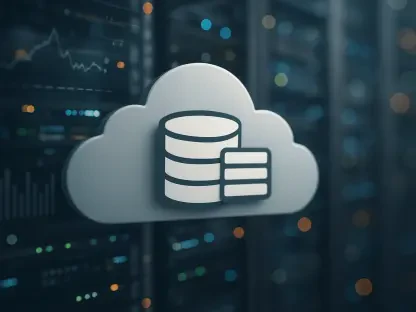In the rapidly evolving landscape of tax and accounting, Software-as-a-Service (SaaS) platforms have emerged as popular tools for businesses of all sizes. These platforms promise convenience, efficiency, and cost savings, but recent events have raised questions about their reliability and the risks they pose. The unexpected shutdown of Bench.co, a prominent SaaS accounting provider, followed by its acquisition and continuation, serves as a cautionary tale. This article delves into the effectiveness and risks of SaaS tax platforms, offering insights for small businesses and legal professionals.
The Rise of SaaS Tax Platforms
Convenience and Efficiency
SaaS tax platforms have revolutionized the way businesses handle their accounting and tax needs. By automating routine tasks, these platforms save time and reduce the burden on small business owners who may lack extensive accounting knowledge. The cloud-based nature of SaaS allows for real-time updates and access from anywhere, making it easier for businesses to stay on top of their financials. This flexibility is particularly valuable for remote teams and businesses with multiple locations, fostering seamless collaboration and financial oversight across different geographies.
Moreover, the integration capabilities of SaaS platforms enable businesses to connect their accounting systems with other essential tools such as CRM software, payment gateways, and inventory management systems. This integration streamlines workflows, reduces data entry errors, and ensures a more cohesive financial management process. As a result, businesses can achieve greater accuracy in their financial reporting, enabling better-informed and more strategic decision-making.
Cost Savings
One of the most attractive features of SaaS platforms is their cost-effectiveness. Unlike traditional software that requires a significant upfront investment, SaaS platforms typically operate on a subscription model. This allows businesses to spread out their expenses and avoid the high costs associated with purchasing and maintaining standalone software. Additionally, SaaS platforms often include updates and support as part of the subscription, further reducing costs. This subscription-based pricing model makes advanced accounting tools accessible to smaller businesses, leveling the playing field in terms of financial management capabilities.
Furthermore, the scalability of SaaS platforms means that businesses can easily adjust their service levels based on their needs. As a business grows, it can upgrade its subscription to access more features or accommodate additional users without the need for costly infrastructure changes. Conversely, during periods of reduced activity or economic downturns, businesses can downgrade their plans to manage costs more effectively. This flexibility helps businesses manage their financial resources more efficiently, ensuring they only pay for what they truly need.
The Risks of Relying on SaaS Platforms
Vulnerability to Provider Shutdowns
The sudden shutdown of Bench.co highlighted a critical vulnerability of SaaS platforms: their dependence on the service provider’s operational status. When a SaaS provider ceases operations, users can lose access to their data and services, potentially disrupting their business operations. This incident underscores the importance of having contingency plans in place and maintaining local records to mitigate such risks. Businesses should regularly back up their data locally and ensure they have alternative solutions ready to deploy in case their primary SaaS provider experiences disruption.
Additionally, businesses should thoroughly vet the stability and financial health of SaaS providers before committing to their services. This due diligence involves assessing the provider’s history, customer reviews, and financial statements to ensure they are not at risk of sudden closure. Moreover, engaging in service level agreements (SLAs) that clearly define the provider’s responsibilities and contingency plans can offer added protection. By proactively addressing these concerns, businesses can better safeguard their operations from potential disruptions caused by SaaS provider shutdowns.
Data Security and Privacy Concerns
Data security is a significant concern for businesses using SaaS platforms. Storing sensitive financial information in the cloud exposes businesses to potential data breaches and cyberattacks. While reputable SaaS providers implement robust security measures, the risk of data breaches cannot be entirely eliminated. Businesses must carefully evaluate the security protocols of their chosen SaaS platforms and consider additional measures to protect their data. This includes encrypting sensitive information, implementing strong access controls, and regularly auditing data security practices.
Moreover, compliance with data protection regulations such as GDPR and CCPA is crucial for businesses to avoid legal repercussions and maintain customer trust. Organizations should ensure their SaaS providers comply with relevant regulations and have clear data handling policies. Regular security assessments and updates, combined with employee training on data protection best practices, can further reduce the risk of security breaches. Ultimately, while SaaS platforms offer significant benefits, businesses must remain vigilant and proactive in safeguarding their data.
The Role of Professional Services
Complementing Technology with Expertise
While SaaS platforms offer valuable tools for managing accounting and tax tasks, they should not be viewed as replacements for professional services. Trained accountants and tax professionals bring a level of expertise and accountability that technology alone cannot provide. These professionals can offer personalized advice, ensure compliance with complex tax regulations, and address unique business challenges. Their deep understanding of tax law and regulatory changes is crucial for navigating the intricacies of tax compliance and optimizing financial strategies.
In addition to compliance, accountants and tax professionals can provide strategic insights that help businesses grow and succeed. They can offer financial planning, budgeting, and forecasting services that align with the company’s long-term goals. By working closely with these experts, businesses can develop tax strategies that minimize liabilities and maximize deductions, ultimately improving their financial health. The collaboration between technology and professional expertise creates a comprehensive approach to financial management, enhancing both efficiency and effectiveness.
Risk Mitigation Strategies
To effectively leverage SaaS platforms while minimizing risks, businesses should adopt a balanced approach. This includes maintaining local backups of critical data, regularly reviewing and updating security measures, and engaging professional accounting services for complex tasks. By combining the convenience of technology with the expertise of professionals, businesses can achieve a more robust and reliable accounting and tax strategy. Regularly testing backup systems and conducting scenario planning can prepare businesses for potential disruptions and ensure continuity.
Developing a comprehensive risk management plan that addresses both technology and human elements is essential. This plan should outline procedures for data recovery, cybersecurity incident response, and compliance monitoring. Clear communication with SaaS providers regarding their security practices and contingency plans is also vital. By taking these proactive steps, businesses can mitigate the risks associated with relying on SaaS platforms and ensure a resilient financial management system.
Expert Insights on the Future of SaaS in Tax and Accounting
Growth in Energy Tax Credit Transfers
Elizabeth Crouse of Holland & Knight anticipates significant growth in energy tax credit transfers, driven by recent legislative changes. This trend presents new opportunities for businesses to optimize their tax strategies, but also requires careful navigation of the evolving regulatory landscape. SaaS platforms can assist in tracking and managing these credits, but professional guidance remains essential for maximizing benefits. The complexity of energy tax credits necessitates a comprehensive understanding of both tax law and industry-specific regulations.
Professionals can help businesses identify eligible projects, document compliance, and claim credits accurately. They can provide strategic advice on structuring transactions to take full advantage of available credits and avoid potential pitfalls. As the regulatory environment around energy tax credits continues to evolve, staying informed and working with knowledgeable professionals will be critical. SaaS platforms can support this effort by providing up-to-date information and tools for managing credit applications and compliance tracking.
Communication in Tax Reform
Alan McLean from the Business at OECD emphasizes the importance of communication in overcoming political and technical barriers in tax reform. Effective communication between businesses, tax professionals, and regulatory bodies is crucial for implementing successful tax strategies. SaaS platforms can facilitate this communication by providing real-time data and analytics, but the human element remains indispensable. Professionals play a key role in interpreting data, advising on regulatory changes, and advocating for clients’ interests.
Open dialogue between stakeholders helps build consensus and address concerns, leading to more effective and sustainable tax policies. For businesses, maintaining regular contact with tax advisers ensures they are well-prepared for upcoming changes and can adapt their strategies accordingly. Utilizing SaaS platforms for data sharing and collaboration can enhance these efforts, but the insights and experience of tax professionals are essential for success.
Strategic Integration of Tax Considerations
Regular Communication with Tax Advisers
Kevin Flynn of EY America advocates for integrating tax considerations into strategic business planning. Regular, direct communication between corporate leaders and their tax advisers ensures that tax strategies align with overall business goals. SaaS platforms can support this integration by providing accurate and timely financial data, but the strategic insights of tax professionals are irreplaceable. This collaboration can lead to more effective tax planning, risk management, and resource allocation.
Tax advisers can help businesses identify opportunities for tax savings, navigate regulatory complexities, and anticipate changes that may impact their operations. By incorporating tax considerations into business decisions from the outset, companies can avoid costly mistakes and seize opportunities for growth. SaaS platforms can enhance this process by automating data collection and analysis, freeing up professionals to focus on higher-level strategic planning. However, the nuanced understanding of tax law and industry trends that professionals bring to the table remains crucial.
Adapting to Regulatory Changes
The tax landscape is constantly evolving, with new regulations and guidance impacting businesses. Experts from Mayer Brown highlight recent IRS guidance on applying Amount B, marking a significant instance of the US incorporating OECD guidance into its rules. Staying informed about these changes and adapting strategies accordingly is essential for compliance and optimization. SaaS platforms can aid in tracking regulatory updates, but professional expertise is crucial for interpreting and applying new rules.
Professionals can provide timely advice on how regulatory changes affect specific business operations, helping companies adjust their strategies and ensure compliance. They can also assist in developing internal policies and procedures to effectively manage new requirements. In a rapidly changing regulatory environment, having access to real-time data through SaaS platforms is valuable, but it is the professional’s ability to contextualize and apply this data that ultimately determines success.
Enhancing Tax Compliance and Fairness
Bolstering IRS Auditor Staffing
Andrew Leahey argues for increasing IRS auditor staffing to enhance tax compliance. Closing the tax gap would recover substantial revenue, restore system fairness, and clarify the governmental operational scope. While SaaS platforms can streamline compliance processes, the role of auditors in enforcing regulations and ensuring fairness cannot be overlooked. Auditors provide the oversight necessary to maintain a fair tax system and ensure all businesses comply with their obligations.
Increased auditor staffing would enable more thorough and timely audits, deterring tax evasion and fostering a culture of compliance. This, in turn, would lead to a more equitable distribution of the tax burden and greater public confidence in the tax system. SaaS platforms can support auditors by providing accurate and easily accessible financial data, simplifying the audit process. However, the human judgment and investigative skills of auditors are indispensable for identifying and addressing complex tax issues.
Addressing Industry Challenges
In today’s ever-changing tax and accounting landscape, Software-as-a-Service (SaaS) platforms have become essential tools for businesses of all sizes. These solutions offer a range of benefits, including convenience, increased efficiency, and cost savings. However, recent developments have highlighted potential risks and reliability issues associated with these platforms. A notable example is the sudden shutdown of Bench.co, a leading SaaS accounting provider, which was followed by its acquisition and subsequent revival. This incident serves as a cautionary tale, prompting a closer examination of the effectiveness and risks tied to SaaS tax platforms. For small businesses and legal professionals, understanding these nuances is crucial in making informed decisions. This article aims to provide insights into both the advantages and potential pitfalls of relying on SaaS platforms in the tax and accounting sector, helping stakeholders navigate the complexities and assess the viability of these technological solutions for their unique needs.









